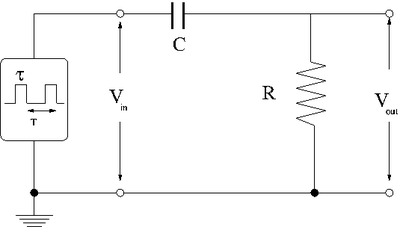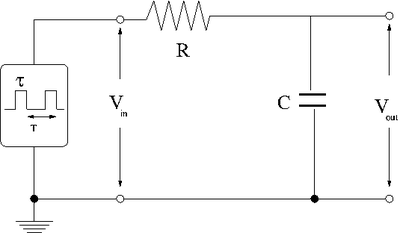Difference between revisions of "TF EIM Chapt3"
Jump to navigation
Jump to search
| Line 12: | Line 12: | ||
You know that the circuit, as a high pass filter, will tend to attenuate low frequency (slow changing) voltages and not high frequency (quick changing) voltages. | You know that the circuit, as a high pass filter, will tend to attenuate low frequency (slow changing) voltages and not high frequency (quick changing) voltages. | ||
| − | This means that points a and b in the pulse shown below should pass through the | + | This means that points <math>a</math> and <math>b</math> in the pulse shown below should pass through the |
=Integrator= | =Integrator= | ||
Revision as of 17:03, 8 February 2011
Differentiator circuit
Consider the effect of a low-pass filter on a rectangular shaped input pulse with a width and period .
The first thing to consider is what happens to the different parts of the square pulse as it travels to the circuit.
You know that the circuit, as a high pass filter, will tend to attenuate low frequency (slow changing) voltages and not high frequency (quick changing) voltages.
This means that points and in the pulse shown below should pass through the

